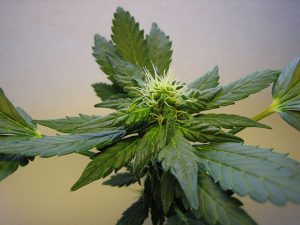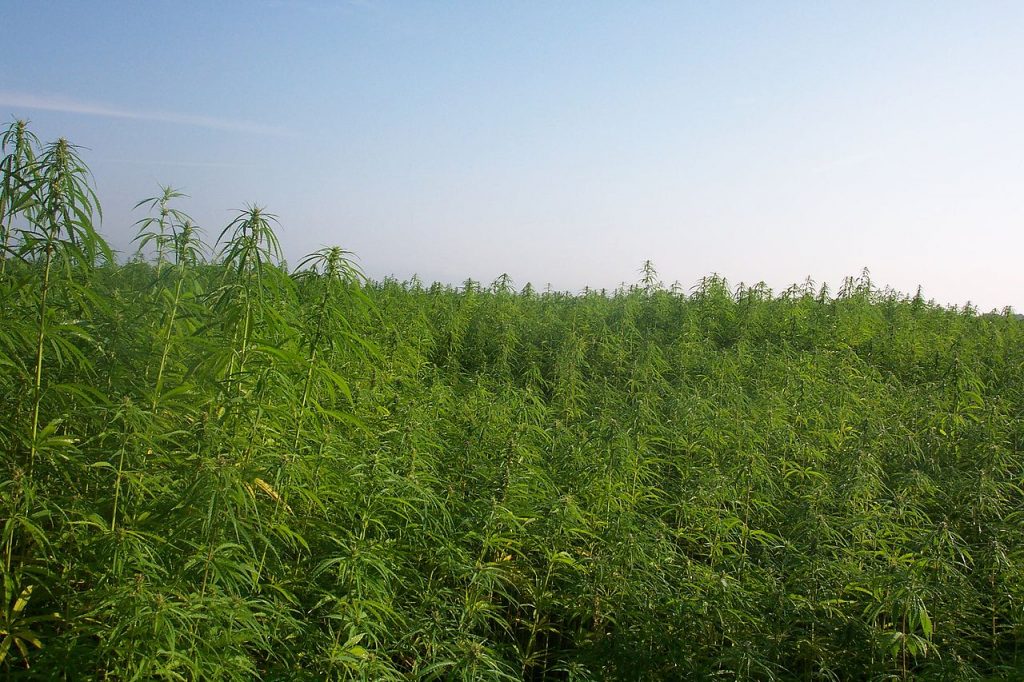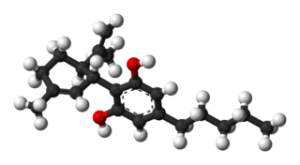Non-intoxicating cannabis compound CBD seems to help the body cope with stress.

- Regulating the stress response. CBD appears to influence regions of the brain associated with responding to stressful stimuli, resulting in benefits such as reduced anxiety.
Overview
Cannabidiol (CBD) is the most abundant cannabinoid in cannabis (Cannabis sativa) after tetrahydrocannabinol (THC). CBD is growing increasingly popular as a supplement because of its multiple health benefits, the most notable of which are:
- Alleviation of anxiety, depression, and stress
- Reduction of pain and inflammation
Unlike THC, CBD has no psychoactive effects, meaning that it does not cause any euphoric or mind-altering effects. Coupled with its medicinal properties, this has made CBD an attractive option for helping with a long list of conditions that includes depression and other mental and neurological disorders, multiple sclerosis, and arthritis.
As a stress reducer, CBD seems to function by supporting the body’s response to stress. More specifically, it appears to reduce defensive responses to stressful events or stimuli, which can include adverse effects such as raised heart rate, blood pressure, and anxiety. 1

How CBD May Help With Stress
Interacting with serotonin receptors

Stimulating adult neurogenesis
Multiple cell culture studies have demonstrated that CBD increases adult hippocampal neurogenesis, the primary way that an adult mammalian brain can grow new brain cells. The impairment of adult neurogenesis has been linked to the development of anxiety and depression.
CBD Uses & Benefits for Stress
Reduction of stress and anxiety are the most popular uses of CBD supplements. And although research on CBD’s health benefits has only just begun, animal and human study findings support its potential to ameliorate both of these concerns, especially in the context of anxiety disorders. 3 In addition, CBD is also used to help with related issues such as difficulty sleeping and chronic pain.
Research
Animal Research
Animal studies demonstrate that CBD can:
- Help the body cope with stress, as exemplified by the reduction of blood pressure, heart rate, and anxiety in rats exposed to restraint stress 4
- Reduce stress, anxiety, and depression in mice and rats 5 6 7
Human Research
Current clinical research suggests that CBD helps the body cope with stress, particularly highlighted by its ability to reduce anxiety.
CBD (600 mg) appears to reduce anxiety in individuals with social anxiety disorder
This double-blind, randomized study examined the effects of CBD on anxiety. A total of 24 people with Social Anxiety Disorder (SAD) were given placebo or CBD (600 mg) 90 minutes before a simulated public speaking test (SPST). The CBD treatment significantly lowered anxiety, cognitive impairment, and overall discomfort during the test. In addition, the performance of the CBD group was noted to be similar to 12 healthy controls (HC) who also underwent the test.
- The researchers concluded that “The increase in anxiety induced by the SPST on subjects with SAD was reduced with the use of CBD, resulting in a similar response as the HC.”8
CBD (400 mg) appears to modulate brain regions related to responding to stressful stimuli
In this double-blind, placebo-controlled study, people with social anxiety disorder (SAD) were given placebo or CBD (400 mg) and were examined using brain imaging. Compared to placebo, CBD was found to significantly decrease subjective anxiety through affecting regions of the brain that process defensive responses to stressful stimuli.
- The researchers concluded that “CBD reduces anxiety in SAD and that this is related to its effects on activity in limbic and paralimbic brain areas.” 9
CBD seems to counteract the anxiety produced by THC
This early double-blind study tested whether CBD was capable of reducing the anxiety produced by tetrahydrocannabinol (THC), the main psychoactive compound in cannabis. Eight people received the following treatments in different order: 0.5 mg/kg THC, 1 mg/kg CBD, a mixture containing 0.5 mg/kg delta 9-THC and 1 mg/kg CBD, diazepam, a common anti-anxiety drug (10 mg), and placebo. CBD was found to counteract the anxiety produced by THC.
- The researchers concluded that “the effects of CBD, as opposed to those of delta 9-THC, might be involved in the antagonism of effects between the two cannabinoids.”10
Dosage for Stress
- Clinical studies have used CBD doses as high as 600 mg, but not enough research has been done to suggest a standard dose
- CBD supplements typically suggest 20 – 25 mg doses of CBD, taken as as CBD hemp oil or CBD extract capsules
- Most CBD products are made from hemp, meaning that they do not contain enough THC to cause any mind-altering effects
Available Forms
- CBD oil. The most popular form of CBD, oil tinctures offer ease of use alongside long duration and fast onset.
- CBD capsules/edibles. Although convenient and long-lasting, capsules and edibles have lower efficacy because of low bioavailability.
- CBD vape oil. Vaping CBD provides the fastest relief and strong effects, but has the shortest duration.
- Topical CBD. Topical CBD is applied to the skin as a cream, balm, or ointment, which is an effective option for arthritis and other types of musculoskeletal pain.
- CBD Isolate. 99%+ pure CBD in crystal/powder form.
Supplements in Review Says
- CBD oil 20+ mg for stress.
CBD seems to be an effective option for dealing with stress and anxiety. CBD has rapidly grown in popularity as a way to reap the benefits of cannabis without the intoxicating effects, and for good reason – current research findings are supportive of its ability to combat anxiety and stress.
There is too little research to recommend a specific dose, so it’s best to start low. There is a notable disparity between the large doses used by research studies and the small doses recommended by most CBD supplements. As such, it’s best to start with a low dose of 20 – 25 mg and then assess the effects to see if the dose should be increased.
What are the side affects
CBD does not have any major side effects, although it may cause minor issues in some people, like reduced blood pressure or drowsiness.
My husband and I are going through a very difficult and stressful time taking care of our aging and ailing parents and CBD has given us a much needed calming effect. It’s the best stress relieving supplement, minus the nasty side effects of pharmaceuticals, either one of us has ever taken! We use water soluble BioCBDplus. – Deb